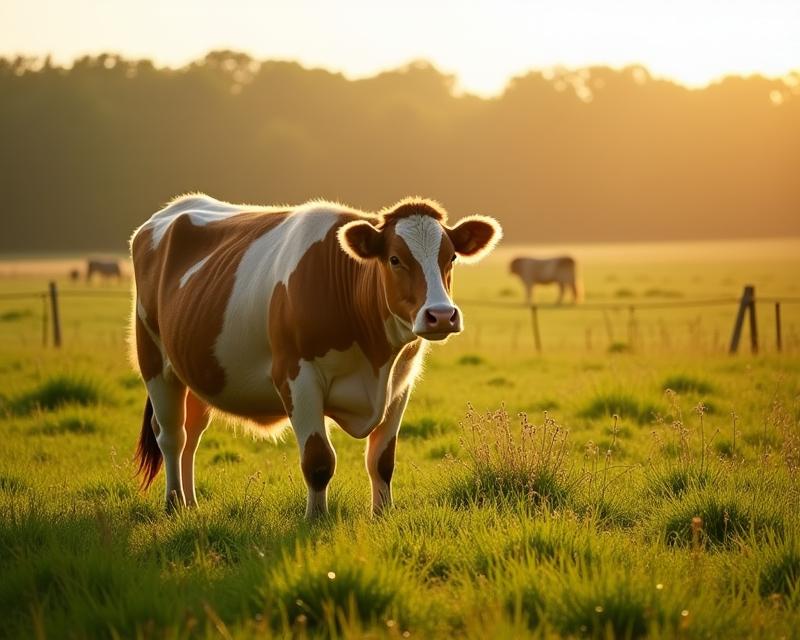Overgrazing: Avoiding Pasture Damage
Publish in Sustainable Farming el 21/07/2025 00:52
Overgrazing: A Farmer's Guide to Healthy Pastures
Welcome, fellow farmers and ranchers! Healthy pastures are the backbone of a thriving agricultural operation. But sometimes, unintentional mistakes can lead to serious problems. One of the most common and damaging is overgrazing. Understanding what causes it, what the consequences are, and how to prevent it is crucial for long-term success and environmental stewardship.

What is Overgrazing?
Simply put, overgrazing happens when livestock eat plants faster than those plants can regrow. Think of it like this: imagine a lawn where the grass is constantly being mowed shorter than it can recover. Eventually, the lawn thins out, becomes patchy, and may even be overtaken by weeds. The same thing happens to pastures. It’s not always about having too many animals; it can also be about the timing of grazing, the type of livestock, or even weather conditions.
The Consequences of Overgrazing
The effects of overgrazing can be devastating. Here's a look at some of the key consequences:
- Pasture Degradation: This is the most immediate impact. Overgrazing reduces the plant diversity in your pasture, favoring resilient but often less nutritious species.
- Soil Erosion: With fewer plant roots holding the soil together, rain and wind can easily wash or blow away topsoil, leading to reduced soil fertility.
- Reduced Carrying Capacity: The pasture's ability to support livestock decreases, meaning you'll have to reduce your herd size or invest in supplemental feed.
- Water Quality Issues: Eroded soil can pollute nearby streams and rivers, harming aquatic life and potentially impacting your water rights.
- Increased Weed Growth: Weakened pastures are more susceptible to invasive weeds, which compete with desirable plants for resources.
Preventing Overgrazing: Practical Strategies
The good news is that overgrazing is preventable! Here are some strategies to keep your pastures healthy:
- Rotational Grazing: This is a cornerstone of sustainable pasture management. Divide your pasture into smaller paddocks and rotate your livestock between them. This allows plants to recover fully before being grazed again.
- Monitor Plant Growth: Regularly assess the health and growth of your pasture plants. Look for signs of stress, such as wilting or thinning.
- Adjust Stocking Rates: Determine the appropriate number of animals for your pasture based on its carrying capacity. Consult with a local agricultural extension agent for guidance.
- Strategic Timing: Avoid grazing during periods of drought or when plants are actively flowering and setting seed.
- Overseeding: Regularly overseed your pastures with a mix of grasses and legumes to improve their resilience and productivity.
Recovering Degraded Pastures
If your pasture has already suffered from overgrazing, don't despair! Recovery is possible. Here are some steps you can take:
- Rest: Allow the pasture to lie fallow for a period of time to allow plants to fully recover.
- Soil Testing: Conduct a soil test to determine nutrient deficiencies and amend the soil as needed.
- Reseeding: Re-seed with a diverse mix of pasture grasses and legumes.
- Controlled Grazing: Implement a rotational grazing system to prevent future overgrazing.
By taking proactive steps to manage your pastures, you can ensure a healthy and productive grazing system for years to come. Remember, sustainable farming is about working *with* nature, not against it!





